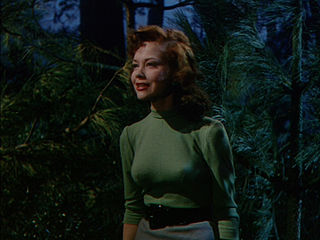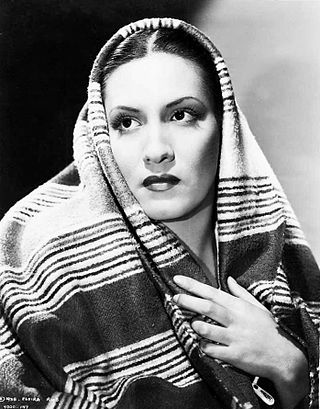Early life
She was born Emma Cranz Cantillano, in Tucson, Arizona, [1] one of 6 children (3 boys and 3 girls) to a German-American father, Frank C., who was born in Oakland, CA and a Mexican mother, Evangelina (née Amillano) (1909-1964), who was born in Sinaloa, Mexico. [3] [4] [5] [6]
In 1953, as a 10-year-old girl, Cranz participated as a dancer and singer in community events in Tucson, Arizona. In February of that year, at the Mission View PTA meeting, which took place in the school auditorium, Cranz and a schoolmate were featured in a group of Mexican dances. [7] Then, she participated in the September 16 Mexican Independence Day Celebration as a dancer and singer, who serenaded the Lady of Guadalupe. Her mother, Evangelina, was an organizer, and her sister, whose name was also Evangelina, was a dancer, as well. The program was broadcast over station KVOA. [8] [9]
As a teenager, she sang at benefits and on a local radio station. At the age of 13, she appeared on television, which did not make a big impression, so her parents moved to Los Angeles, California to try to have her break in as a professional singer. Later, she joined the Chuck Rio Quintet in Las Vegas and performed with them for several seasons. She left the group to record with Orfeón in Mexico. [10]
Career
In 1961, Cranz began her career as a Mexican recording artist on the Peerless label, backed up by Los Boppers, singing "Ahora o Nunca" and on the flip-side "Papa Loves Mambo" on a 45 rpm single. [11] Later, she recorded on the Maya, Orfeón, Dimsa, and RCA Victor labels [12] various singles and albums in Spanish, and, most notably, an English album (backed by the Mariachi Guadalajara) called "Speak to Me."
In 1962, she appeared on the Paco Malgesto program every Saturday night on KWEX-TV Ch.41 in San Antonio, Texas. [10]
From 1963 to 1970, Cranz appeared in Mexican movies, television variety shows, and telenovelas (soap operas), where, in addition to acting, she would frequently sing or dance. She considered herself to be a "vedette" (a showgirl), rather than a serious actress. [1]
One of her more popular appearances was in 1966, when she co-starred with Gaspar Henaine as Capulina in La cigüeña distraída (1966), a comedy film directed by Emilio Gómez Muriel.
She also accompanied show troupes and performed in different cities. In 1962, she was a member of a Mexico City troupe—complete with recording artists, dancers, and mariachis—that headlined the annual Fiesta de Mayo celebration in her home town of Tucson. [13]
In 1970, she appeared on U.S. television in the Bob Hope Comedy Special, which was set in Acapulco during the Mexico International Film Festival.

Mariachi is an ensemble of musicians that typically play ranchera, the regional Mexican music dating back to at least the 18th century, evolving over time in the countryside of various regions of western Mexico. The usual mariachi group today consists of as many as eight violins, two trumpets and at least one guitar, including a high-pitched vihuela and an acoustic bass guitar called a guitarrón, and all players taking turns singing lead and doing backup vocals.

Yolanda Yvonne Montes Farrington, better known by her stage-name Tongolele, is an American dancer, actress and vedette.

Maria Antonieta Pons was a Cuban-born Mexican film actress and dancer. She was the first actress in the Rumberas films in the 1940s and 1950s, in the Golden Age of Mexican cinema. The Rumberas film genre offered a societal perspective on Mexico during the 40s-50s. It delved into the lives of women deemed as sinners or prostitutes, challenging the prevailing moral and social norms of their era.

Angélica María Hartman Ortiz, known professionally as La novia de Mexico, is a Mexican actress and singer. Her songs El hombre de mi vida peaked at No. 6, Reina Y Cenicienta peaked at No. 9, Prohibido (Prohibited) peaked at No. 13, and El Taconazo peaked at No. 34 on the hot Latin songs chart.
Tucson Unified School District (TUSD) is the largest school district of Tucson, Arizona, in terms of enrollment. Dr. Gabriel Trujillo is the superintendent, appointed on September 12, 2017, by the Governing Board. As of 2016, TUSD had more than 47,670 students. As of Fall 2012, according to Superintendent John Pedicone, TUSD had 50,000 students. District enrollment has declined over the last 10 years and TUSD lost 1,700 to 2,000 students per year for the two or three years prior to 2012.

Antonia del Carmen Peregrino Álvarez, known by her stage name Toña la Negra, was a Mexican singer and actress of partial Haitian ancestry, known for her interpretation of boleros and canciones written by Agustín Lara.
Amparo Arozamena was a Mexican actress of film and television, best known for her character roles in the 1960s. During the same decade, she became most noted for her role of "Doña Chole" in the Telesistema Mexicano sitcom Los Beverly de Peralvillo (1968–1973). Arozamena had been acting since her early teens and had her first feature film released at the age of thirteen.

Amalia Isabel Rodríguez Carriera, known professionally as Amalia Aguilar, was a Cuban-Mexican dancer, actress and comedian.
The Rumberas film was a film genre that flourished in Mexico's Golden Age of Mexican cinema in the 1940s and 1950s. Its major stars were the so-called rumberas, dancers of Afro-Caribbean musical rhythms. The genre is a film curiosity, one of the most fascinating hybrids of the international cinema.
María Dussauge Ortiz, commonly known as María Duval, is a Mexican actress and singer who has worked in film, television, and the stage.
"Americano" is a song recorded by American singer Lady Gaga, taken from her second studio album, Born This Way (2011). The song was written and produced by Gaga with DJ White Shadow, Fernando Garibay, and Brian Lee. "Americano" was influenced by the events surrounding the repeal of the controversial California Proposition 8—a ballot proposition that defined marriage as a union between opposite-sex couples, thereby prohibiting and invalidating same-sex marriage throughout the state—as well as the growing struggles of Mexican immigrants. It combines mariachi, house, and techno genres with elements from Latin music. Lyrically, the song talks about Lady Gaga's infatuation with a woman.
Tucson, Arizona has a strong, growing independent music culture that focuses on locally grown and locally derived musical genres. The city is home to musical organizations that seek to nurture artists from the local music scene as well as introduce the community to other musical styles from beyond Southern Arizona.

A vedette is the main female artist of a show derived from cabaret and its subcategories of revue, vaudeville, music hall or burlesque. The purpose of the vedette is to entertain and captivate the public. Vedettes are expected to sing, dance and act on stage. Particularly accomplished artistes are considered super vedettes or first vedettes. Vedettes often appear alongside groups of dancers, flashy and revealing costumes, magicians, comedians, jugglers, or even performing animals. Vedettes specializing in burlesque generally do striptease and may also perform nude on stage.
Emilio Gómez Muriel was a prolific Mexican film director, active between the 1930s and the 1970s.

Helene Stanley was an American actress. She is best known for being the live model for Cinderella, Aurora, and Anita Radcliffe.

Gloria Evangelina Elizondo López-Llera was a Mexican actress and singer from the Golden Age of Mexican cinema. She starred in movies, television and theater. She was an accomplished artist having studied at the National School of Painting and had a degree in theology. She wrote two books and recorded numerous albums. In 2014, she received a Premios Arlequín for her contributions to Mexican culture.

Rosita Fornés was a Cuban-American singer and film actress. She was noted for her multifaceted career in the entertainment industry of Cuba. She worked in cinema, the theater, radio, television and cabaret.
Dolores Consuelo Barcelo Gonzales was a Mexican–American fashion designer based in Tucson, Arizona. She is best known for blending Native American and Mexican clothing traditions to create distinctive southwest resort wear dresses known as patio dresses, the fiesta dresses,. She founded the company Dolores Resort Wear that manufactured dresses for the American market, selling in upscale department stores across the country. The iconic design was appropriated and copied by other designers throughout the southwest becoming synonymous with mid-twentieth century regionalist fashion of the American Southwest. The dress design became the official dress of the American Square-dancing movement.

María Elvira Gallegos Ríos was a Mexican singer and actress.

Luisa Espinel, born Luisa Ronstadt, was an American singer, dancer, and actress. She toured, taught, performed in vaudeville, and appeared in a movie with Marlene Dietrich.












